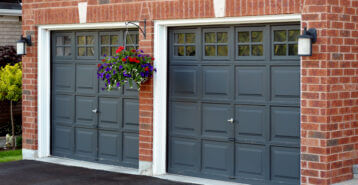Are you doing a solar project?
Modernize can pair you with three to four pros in your area, so you can compare options and save time and money.
It’s very exciting that you have set a course to power your home through solar energy and in doing so will be increasingly saving on your utility bills. With a budget in hand and its particulars as ironed out as possible, you should have an idea by now about whether your project will require financing. If you do go the route of solar financing, it is best to have an understanding of the many options you can take.
No one knows your financial obligations and constraints better than you do, which means you (and your family and friends) are a great initial source for what version of solar financing will work best for you.
Secondly, you should be consulting the experienced contractor working your project. They will at least have some institutional knowledge about financing solar home improvement projects and will definitely share anecdotal examples of the various choices you could make, based on what they have seen other homeowners do (complete with benefits and risks).
Below, we’ll lay out some of the broad ways you could approach solar financing and how to best consider each avenue. Most importantly, just having looked up this guide means you’re doing the right thing and are in the right place — seeking out information about the financial nature of home improvement can be as impactful to your project as its nitty-gritty particulars.
Solar financing: Benefits from unique federal assistance
Unique to solar panel installations that homeowners partake are some credits, rebates, and incentives the government makes abundantly and relatively easy to get.
Chief among the incentives is the Residential Renewable Energy Tax Credit, which applies to up to 30 percent of your installation (that’s hard and soft costs combined). For example, Solar Energy International reports that a typical five-kilowatt solar system installation would drop from $15,428 to $10,800 after the rebate is applied. While such a discount is tempting, tax incentives apply during tax season—not before.
Some contractors agree to take on the full cost during installation and wait for the rebate themselves. Whatever the case, it’s important to have a clear understanding of how this and other incentives will apply to your present and future solar panel system costs. That knowledge is subsequently how you will plan and determine whether and how much financing is right for you.

Solar financing through existing credit cards or credit lines
Most Americans own credit cards and many of those are able to cover the costs of a smaller or minor home improvement project. Your existing credit card is mostly an obvious choice for financing solar panel installations because it’s readily available and you already know its ins and outs.
On one hand, swiping it for your home improvement project is easy and requires little extra work. On the other hand, credit card purchases could quickly amass and if you can’t pay the amount back before it kicks into the next payment period, you could be stuck paying interest on that purchase. Quick and easy could be attractive in the short term, but be sure the purchase fits into your budget (and your personal cash flow) before pulling it out of your wallet. While an unpaid balance or interest rates on any type of debt are not good for your credit score or personal financial health, ones tied to your home could affect your access to it. To best protect your home when considering using it for financing solar panel systems, be sure to consult someone you trust, ideally a financial expert or guide. A local and experienced contractor should be able to recommend financial institutions with experience in the field.
Find the Right Contractor for Your Solar Project
Whether you’re ready to begin your project now or need some expert advice, our network of contractors are here to help. With a few simple questions, we’ll find the best local professionals for you
Financing through federal housing loans
The Department of Housing and Urban Development (HUD) oversees private loans specifically aimed at home improvement and insures them up to $25,000, incentivizing lenders who might be assessing whether to lend a homeowner like you money for your project.
Since the government is involved, you’re likely looking at a lower interest rate than you would through a private loan or one through your contractor. And options from which to apply for a Title I abound, including banks, mortgage companies, savings and loans associations, and credit unions. Just ask your place of choice whether they’re approved to make these loans and they should be able to provide written certification to prove they’re qualified.
Notably, these loans cannot be applied to houses which were built less than three months before or occupied for less than three months. In other words, this is not intended for brand new houses. Additionally, if the loan amount requested is higher than $7,500, it “must be secured by a mortgage or deed of trust on the property,” so you’re again borrowing against the value of your existing equity. This is not necessarily a negative but it is something to keep in mind.
Solar financing through property-based loans
With a relatively good credit report and financial history or by simply leaning into a home you own, loans based on the property itself are likely the most useful type of loan for a home improvement project, but they require substantial planning and guidance. Be sure that the cost of your solar panel system installation is worth this type of loan.
Having said that, one of the results of a solar panel project is an increased home value, therefore you’ll see a return on the investment. And while all home improvement projects present some form of investment, ones in the value of your home are longer term and yield larger returns. If the improvement itself seems lucrative enough, it might be worth a home equity loan or otherwise refinancing your mortgage. Of course, a loan against the value of your home or your equity puts it on the line.
Financing directly through a solar contractor
The most efficient option when it comes to financing for solar panels is the person or company that brings in the panels and does the installing: your contractor. They have the most intimate knowledge of precisely what you need and the amounts needed to borrow to cover it. They also might offer you incentives to finance through them, from discounts on the work itself to lowered interest rates (if any at all) on the loan itself.
However, opening up your credit line to your contractor could result in less than savory practices. Some contractors who know how much you’re able to pay back might use that information in determining how to advise you about where to invest it, from products to services and into upselling you for more than you asked for or need. It might not even be malicious. It’s difficult for any organization that provides a service or product and the financing of those projects to completely separate the two. While this behavior is not necessarily typical, you should only consider financing a solar panel installation project through an experienced contractor whom you personally trust.
Anything you share with a contractor is sensitive, of course, whether you finance completely outside of their suggestions or offers or not. It’s paramount that your contractor, the largest and most immediate benefactor of your financing (since they’re getting paid) is someone with local expertise and a history of trust. While we cannot lend you money, we are able to recommend the best contractor in your area and for your specific needs.
Modernize’s content is intended for informational use only. We make no representations to the accuracy, completeness, correctness, suitability, or validity of any information on this site, and will not be liable for any errors, omissions, or delays in this information or any losses, injuries, or damages arising from its display or use. All information is provided on an as-is basis. It is the reader’s responsibility to verify their own facts. By using our website, you are accepting the practices described in this Privacy Policy. Please review our Terms of Service for more.
Find the Right Contractor for Your Solar Project
Whether you’re ready to begin your project now or need some expert advice, our network of contractors are here to help. With a few simple questions, we’ll find the best local professionals for you
Reviews from Real Homeowners
Welcome to Homeowner Resources! We are the Modernize blog. Modernize pairs more than 3 million homeowners a year with pre-vetted contractors in their area. This blog started because we believe homeowners should know everything about their homes, from how their HVAC works to which front door colors they might love. On Homeowner Resources, you can find information on every part of your home, right down to how you can negotiate with contractors to get the best price. Here's more about the blog.
Need a contractor? Learn more about how Modernize finds the right pro for you.



